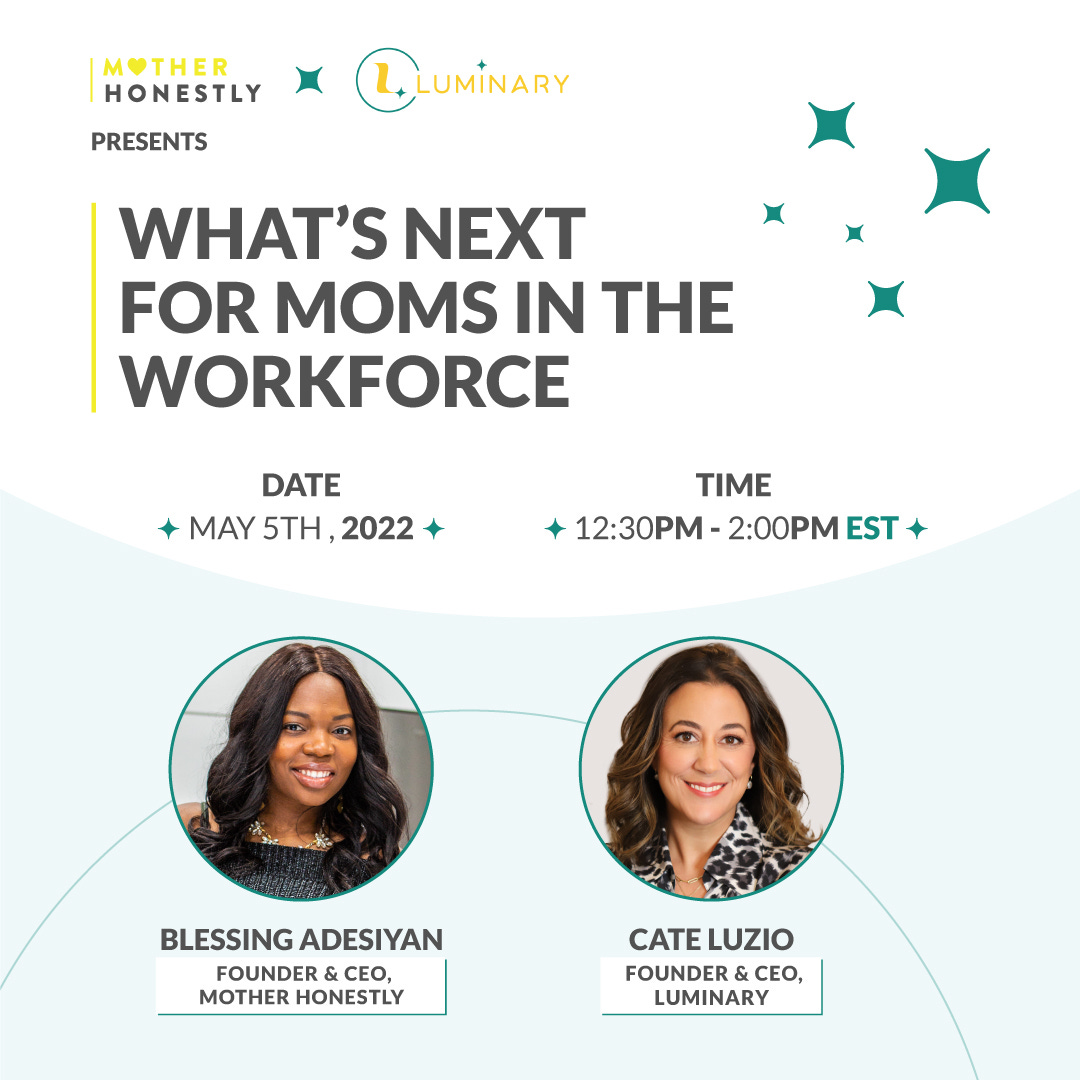Yes, Prioritizing Your Career Is Good for Your Kids
Point to this book the next time someone tries to shame you for working hard.
I used to lie about how much time my kids spent in daycare.
I felt guilty about it, especially after a fellow parent once winced when I told him my kids were in care from 8 a.m. to 5:30 p.m. I’ll never forget his next question: “That’s a long day, isn’t it?”
This is a common refrain from those who harbor prejudice against working moms. It’s no longer socially acceptable to ban mothers from the workplace, but you can worry about their children.
Research suggests that concern is wholly unnecessary. One of the most comprehensive studies on the subject, led by Harvard Business School Professor Kathleen McGinn, found that kids of employed moms are just as happy as adults as the children of moms who weren’t employed. In fact, data shows that daughters of working moms earn more money in their own careers, and their sons spend an extra 50 minutes each week caring for family members.
Yet that data has done little to reduce the anxiety and shame working mothers experience, writes Lara Bazelon in her newly-released book, Ambitious Like a Mother: Why Prioritizing Your Career is Good for Your Kids. A professor at the University of San Francisco School of Law, Bazelon interviewed dozens of employed moms “raising happy, healthy kids,” and chronicles how she learned to embrace her ambition, even when it conflicted with a society that pressures women to prioritize hearth and home.
Bazelon’s book is a rousing reminder to ignore the passive-aggressive guilt trips (that, it should be noted, rarely get directed towards dads). We chatted about why moms should feel no shame for prioritizing our careers—long days and all.
Q: What do you think are some of the most destructive myths working moms have internalized?
That you need to be fully present for every moment of your child's existence. The truth of the matter is that quality is more important than quantity. Yet there’s an idea that all moments need to be cherished, including diaper changes, temper tantrums and wiping Cheerios off the floor. A lot of being a mom is really difficult and messy. The idea that it's all enjoyable, and there's something wrong with you if you're not happy and engaged and present 100 percent of the time, is very destructive.
Q: Very true! And it seems like that pressure to cherish every moment has only increased in recent years.
A: I agree. I think it is getting worse, and one culprit is social media. Now we have these perfectly curated images of postpartum moms in their skinny jeans and beautiful homes who are holding a baby and also being a girl boss, never letting a single ball drop. And even though these images don't tell the full story of what’s going on behind the scenes, it's hard not to make comparisons to your own life. You think about your unmade bed or the times you were late to school pick-up. Obviously, social media is not all bad—moms can connect and be inspired. But it's destructive to the extent that it holds up an ideal that nobody can live up to, including the people in the actual pictures.
Q: In the book, you mention that many of the women you interviewed were reluctant to describe themselves as ambitious. Given that driven women are still so stigmatized, how do we learn to embrace our ambition?
If you look up ambition in the dictionary, it means wanting to excel and achieve. There's nothing in the definition that’s off-putting or self-aggrandizing, but somehow our culture has made it that way for women. Being ambitious is actually a perfectly natural human impulse, and it's a wonderful way to model independence and resilience for children. I think we need to take back the definition.
Q: Do you think the pandemic set us back, or pushed us forward, in terms of how society thinks about working moms?
A: I'm hopeful that more people understand not only do women need to work—which is absolutely true for the vast majority of women—but also that many women want to work. And it's not just OK, it's great. Empirical data shows that it benefits children. They learn important lessons about divvying up domestic tasks, gender parity and financial independence when they see their moms working. Hopefully, we're also at an inflection point where women have the capacity to redefine work for themselves, because we’ve proven that under flexible conditions we can be just as productive, if not more productive. Now, thanks to labor scarcity and our own track record, we can say, I'm not going back to the pre-pandemic status quo. Give me what I deserve, whether it's a flexible schedule or more paid time off, or I'm going elsewhere, because I know my talents will be appreciated in the job market.
BECOME A MEMBER
Our digital membership helps you flourish at home and in the workplace with:
Access to toolkits, worksheets, resources to manage your household and career.
Monthly Motherhood Conversations with women in the workforce in similar life-stages. Coming up on April 21st!
Curated digital events to support your journey personally and professionally.
100+ hours of video content on childcare, household management, outsourcing, managing burnout, and more.
JOIN US
Join us May 5th at 12:30 p.m. to talk about what’s next for women who want to flourish at home and at work.
BOOK A 1-ON-1 CONSULTATION:
Stop winging it. Get coaching, feedback, advice, and mentorship from the nation’s top leaders in parenting, work and life, including Winnie CEO Co-Founder Sara Mauskopf. Schedule a Motherboard session today!
LOVE TO SEE IT
Jewelry retailer Kendra Scott makes Mother’s Day a paid holiday for all employees. Store and customer care teams working on the holiday on Sunday, May 8, will be paid time and a half.
Delaware passes paid family and medical leave. The state’s legislature voted to approve a new paid family and medical leave program that gives eligible workers up to 12 weeks of parental leave, or up to 6 weeks of leave to care for an ill family member, their own health condition, or for a family member’s deployment. The program will launch in 2026, and workers will receive up to 80 percent of their wages while on leave.
HATE TO SEE IT
Babies born during the covid crisis show slower verbal growth. They had significantly fewer vocalizations and less verbal back-and-forth with their caretakers compared to babies born before the pandemic, according to a new study by Brown University and a national nonprofit focused on early language development. The researchers posit that parental stress, depression and burnout, which increased during the pandemic, are possible explanations.
Over half of parents/guardians (56%) report that inadequate access to child care has prevented or postponed some career-related activities, such as conducting a job search or working towards a promotion. That’s from a survey commissioned by BestColleges.com and conducted in late March. Over half of parents surveyed want the government to take steps to improve child care access.
#RELATABLE

This newsletter was written by Audrey Goodson Kingo, Editor in Chief at Mother Honestly. Please send feedback, ideas and suggestions to me at audrey@motherhonestly.com. And if you found this newsletter helpful, share with a friend:






